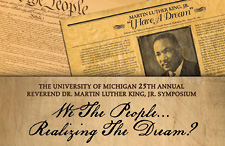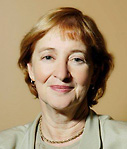
Surrounded by the Great Lakes, water in Michigan seems abundant. But in much of the world water is scarce.
The freshwater crisis is the greatest ecological crisis of our time as water disappears from many parts of the world, scientists say. To highlight the problem the United Nations General Assembly passed a resolution last summer defining access to clean water and sanitation as a human right.
Maude Barlow, an internationally known water activist and author, will discuss the crisis at 5 p.m. Jan. 20 at the Michigan Theater. The lecture, which is free and open to the public, is presented as part of the MLK Symposium, the Winter 2011 LSA Theme Semester on Water and the School of Art & Design’s Penny Stamps Distinguished Speaker Series. (NOTE: An earlier version of the MLK Symposium events calendar, which ran in the print edition of the Jan. 10 University Record, listed an incorrect time for this event.)
“People who live near the Great Lakes can’t imagine that there is a water crisis,’’ says Barlow, national chairperson of The Council of Canadians and co-founder of the Blue Planet Project, which works internationally for the right to water. Barlow also chairs the board of Washington-based Food & Water Watch and is the recipient of numerous awards.

Photo courtesy Maude Barlow.
“However in the global South — Africa, Asia and Latin America — every three and a half seconds a child dies of water-borne disease, the number one killer of children, according to the World Health Organization,” she says. “Women spend up to five hours a day finding carrying water, so the girls can’t go to school.”
During her lecture Barlow will outline the causes and dimensions of the crisis and offer a principle-based solution to a water-secure future for all. The lecture also is co-sponsored by the School of Public Health, the Center for the Education of Women Frances and Sydney Lewis Visiting Leaders Fund, the Exhibit Museum of Natural History, the Program in the Environment and the Graham Environmental Sustainability Institute.

